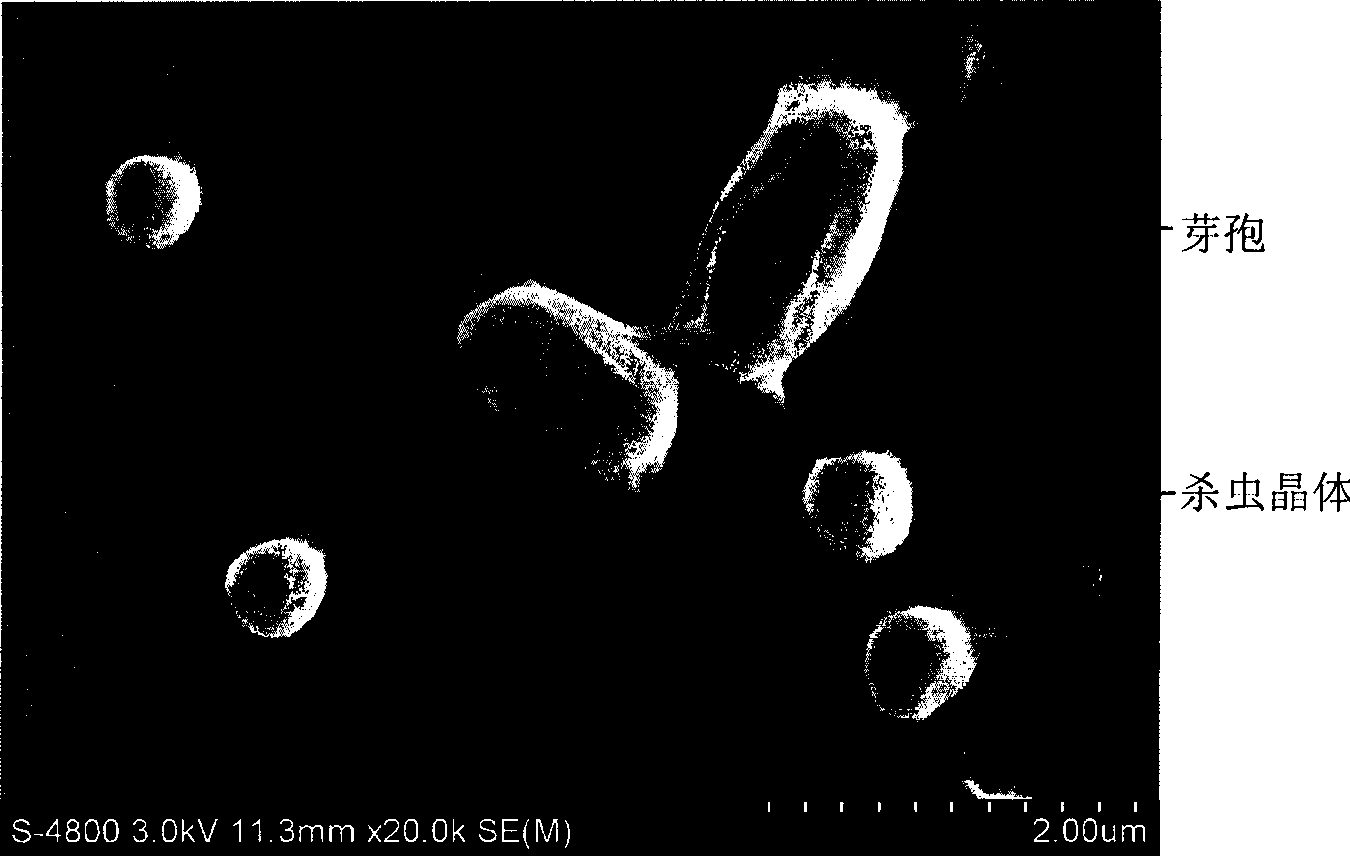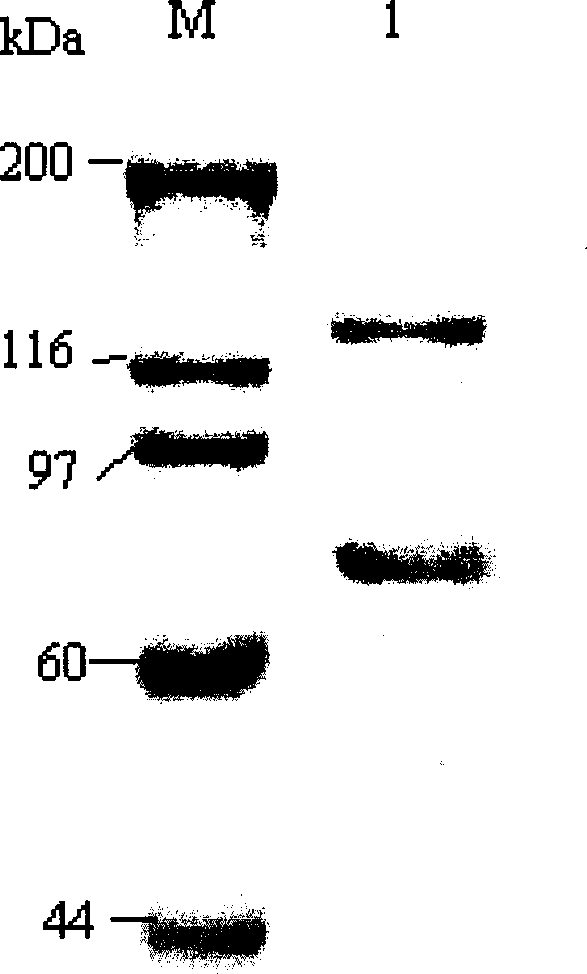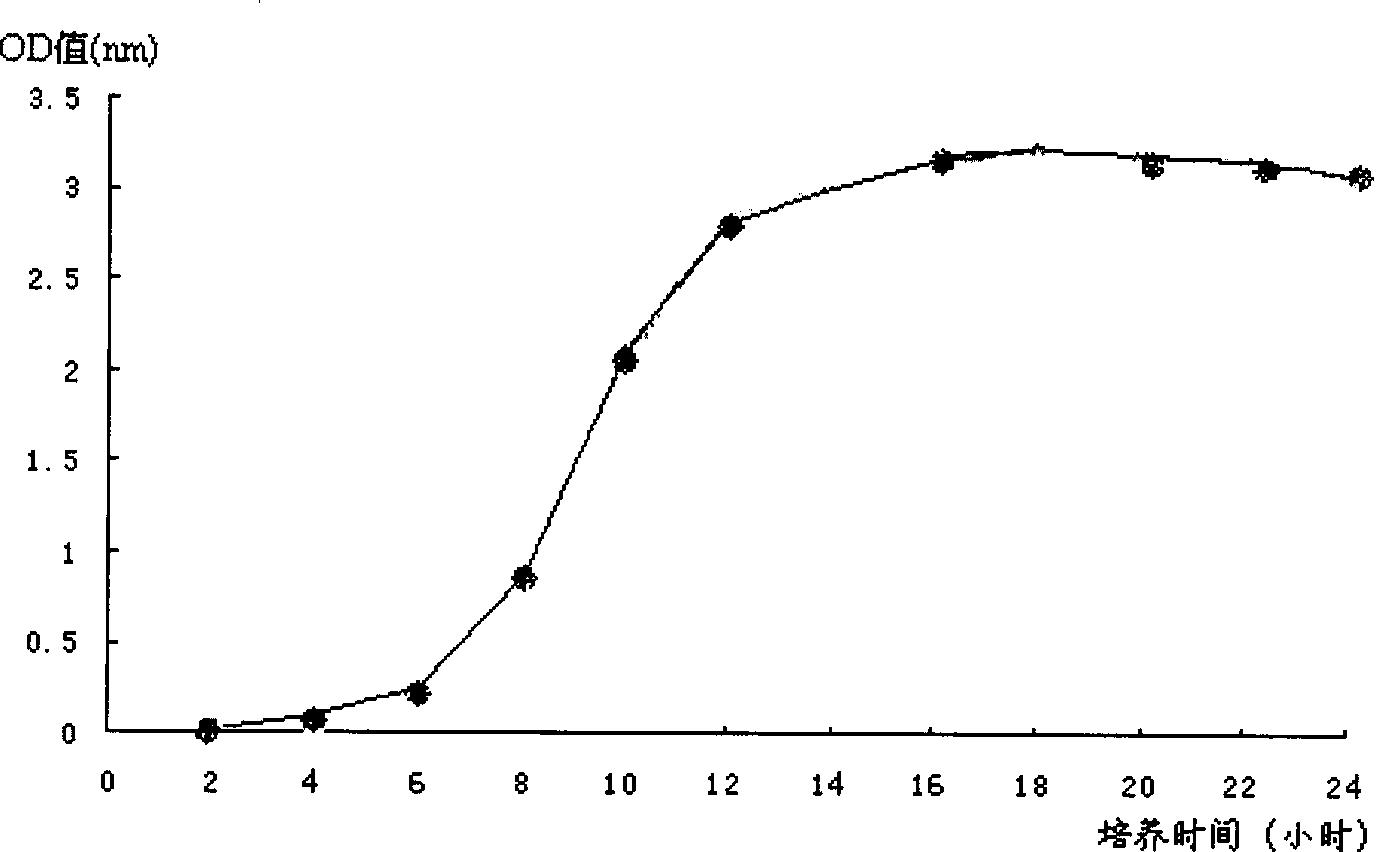Bacillus thuringiensis HS18-1 and application thereof
A technology of Bacillus aureus, cgmccno.2718, applied in the field of Bacillus thuringiensis and its application in agricultural pest control
- Summary
- Abstract
- Description
- Claims
- Application Information
AI Technical Summary
Problems solved by technology
Method used
Image
Examples
Embodiment 1
[0023] Example 1 Screening and Identification of Bacillus thuringiensis
[0024] The soil was collected from the Wenjiang area of Chengdu, Sichuan Province. Adopt sodium acetate-antibiotic separation method, take 10g soil sample and put into the shaking flask that 50ml sodium acetate medium is housed, add respectively 400 μ g / ml of penicillin sodium salt and gentamicin sulfate, shake table culture (200r / min , 30°C) 4h. After the cultivation, take 10ml of soil suspension, put it into a sterile centrifuge tube and centrifuge at 3000r / min for 15min, take 2ml of the upper cloudy solution and place it in a water bath at 65°C for 15min, take 0.1ml of the heat-treated cloudy solution and spread it on a plate, and place the plate in a 30°C incubator cultivated in. After 48 hours, smears of Bt-like strains were picked from the plate. A Bt strain with spherical crystal morphology was found (see attached figure 1). Observed by optical microscope and electron microscope, the cells ...
Embodiment 2
[0025] Example 2 Identification of cry gene in bacterial strain HS18-1
[0026] The total DNA of strain HS18-1 was extracted using a genomic DNA purification kit (purchased from Saibaisheng Company). Specific pairs were designed according to the conserved sequences of cry4 and cry30 genes, respectively.
[0027] Design a pair of specific primers based on the cry4 gene:
[0028] 5'-GTGTCAAGAGAACCAACAGTATG-3'
[0029] 5'-ACTAAGTCTCTCTCCTGTATGACCAG-3'
[0030] Design a pair of universal primers based on the cry30 gene:
[0031] 5'-AAGATTGGCTCAATATGTGTC-3'
[0032] 5'-GATTATCAGGATTCTACACTAG-3'
[0033] Use the following PCR reaction system for identification:
[0034] 10×buffer 2.5μl
[0035] MgCl 2 (25mM) 1.5μl
[0036] Taq enzyme 0.2μl
[0037] dNTPs (2.5mM) 2μl
[0038] Primer 2μl
[0039] Template 5 μl μ
[0040] Final reaction volume 25 μl
[0041] Thermal cycle reaction: pre-denaturation at 94°C for 5 minutes; denaturation at 94°C for 1 minute, annealing at 54°...
Embodiment 3
[0042] Example 3 Cloning of cry4 and cry30 genes in bacterial strain HS18-1
[0043] Genomic DNA Purification Kit (purchased from Saibaisheng Company) was used to extract the total DNA of bacterial strain HS18-1; design its full-length gene primers P1, P2, P3, P4 (primer sequences are as follows); use the total DNA of bacterial strain HS18-1 as a template The primers were used for PCR amplification respectively, and the reaction system and reaction procedure were the same as in Example 2; using the total DNA of strain HS18-1 as a template, the full-length cry30 gene was amplified with P1 and P2 to obtain a fragment about 2 kb in length; and P4 to amplify the full-length cry4 gene to obtain a fragment about 3.5kb in length. The purified PCR products were connected to the pGEM-T vector, transformed, and a positive clone of the target fragment was picked and sequenced to obtain the sequences SEQ ID NO1 and SEQ ID NO 3 respectively.
[0044] P1: 5'ATGAATTTATATCAAAATGAAAATGA3'
...
PUM
 Login to View More
Login to View More Abstract
Description
Claims
Application Information
 Login to View More
Login to View More - R&D
- Intellectual Property
- Life Sciences
- Materials
- Tech Scout
- Unparalleled Data Quality
- Higher Quality Content
- 60% Fewer Hallucinations
Browse by: Latest US Patents, China's latest patents, Technical Efficacy Thesaurus, Application Domain, Technology Topic, Popular Technical Reports.
© 2025 PatSnap. All rights reserved.Legal|Privacy policy|Modern Slavery Act Transparency Statement|Sitemap|About US| Contact US: help@patsnap.com



